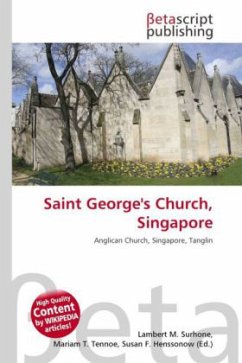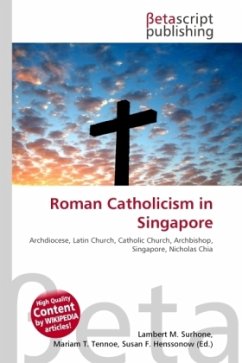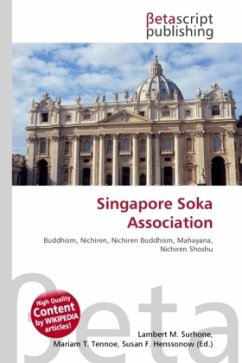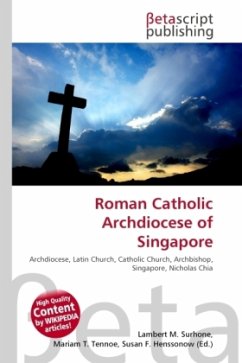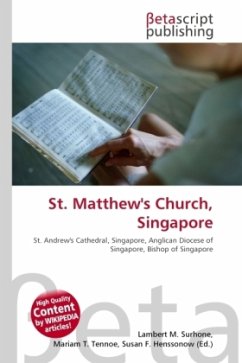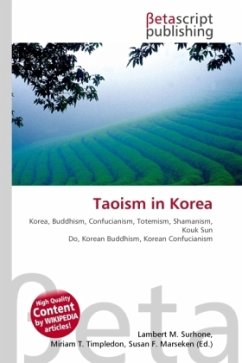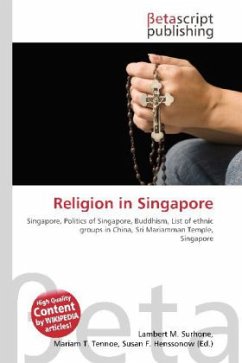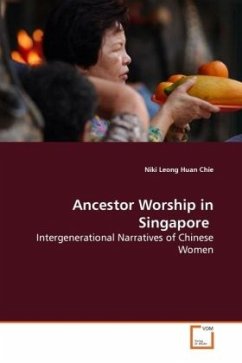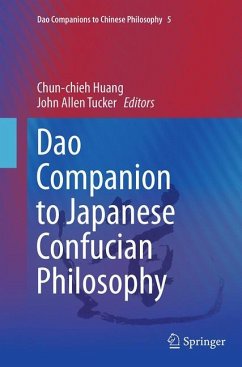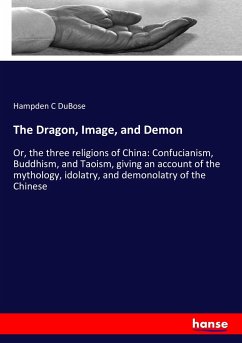
Taoism in Singapore
Versandkostenfrei!
Versandfertig in 6-10 Tagen
26,99 €
inkl. MwSt.

PAYBACK Punkte
13 °P sammeln!
High Quality Content by WIKIPEDIA articles! Taoism itself forms the nucleus of Chinese customs amongst Chinese Singaporeans, and such beliefs are also adopted by Buddhists. Deities, such as Guan Yu, Xuan Tian Shang Di, and the patron deity are some of the most popular deities among Taoist adherents and the local Chinese community. The Yin Yang concept, being an orthodox Taoist principle, is, however, only ancedotally practiced by the common Taoist believers. Taoist martial arts, notably Tai Chi, is practiced in community centres. Today, most of the 300-odd Chinese temples in Singapore, a figur...
High Quality Content by WIKIPEDIA articles! Taoism itself forms the nucleus of Chinese customs amongst Chinese Singaporeans, and such beliefs are also adopted by Buddhists. Deities, such as Guan Yu, Xuan Tian Shang Di, and the patron deity are some of the most popular deities among Taoist adherents and the local Chinese community. The Yin Yang concept, being an orthodox Taoist principle, is, however, only ancedotally practiced by the common Taoist believers. Taoist martial arts, notably Tai Chi, is practiced in community centres. Today, most of the 300-odd Chinese temples in Singapore, a figure derived from the 2000 census, enshrined and worshipped Taoist Gods alongside with the Buddha. One of these Taoist temples is the Thian Hock Keng, built by the late wealthy philanthropist Dr Tan Tock Seng, which also serves as the root of the Singapore Hokkien Association. There are other notables temples such as the Soon Tian Gong in Geylang and the Guan Yin Temple in Waterloo Street.



